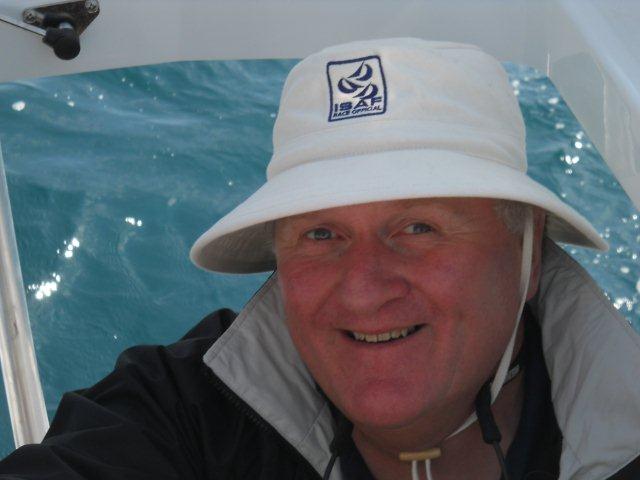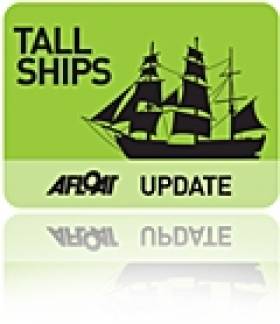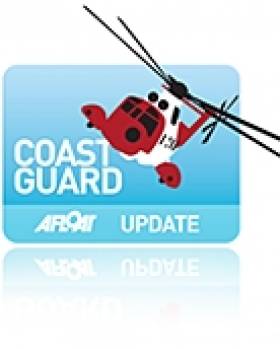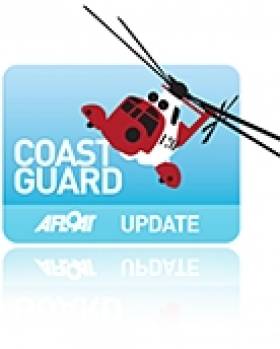Displaying items by tag: Portland
Dublin Race Officer Appointed to London Olympic Sailing Competition
#OLYMPIC – Dublin Race officer Jack Roy has been congratulated by the International Sailing Federation (ISAF) this morning on his prestitgious appointment as a race officer for the London Olympics. He had been shortlisted last November but confirmation of one of the top jobs in the sport of sailing has only been received today.
The National Yacht Club and Royal Irish Yacht Club member was one of only 25 rated for one of the most important roles in a race official's career. As reported in April last season Roy had been part of a panel of 25, from which 16 were chosen this week to run the London regatta.

Dun Laoghaire Race Officer Jack Roy who will officiate at the 2012 Olympic Sailing Regatta in London
Roy has already run the 2011 sailboard and Laser races at the Olympic test event as part of a 180–strong race management team.
Roy is based in Dun Laoghaire and is a former Flying fifteen champion sailor. A member of the National Yacht Club, he has acted as Race Officer for many World and European championships run on Dublin Bay in recent years including Flying Fifteen Worlds, Laser 4.7 Europeans, 2007 Etchell European Championships, Volvo Dun Laoghaire Regatta, Cork Week, and SB3 Worlds 2008.
The International Sailing Federation confirmed Roy's apponitment this morning as a member of the race management team at the 2012 London Olympic Games Sailing Competition which will take place in Weymouth (GBR) from 27 July through to 12 August.
His specific role on the race management team will be advised by ISAF shortly.
Sail Training Fleet to Race to Weymouth and Portland
The charities running the vessels use Sail Training to provide life changing opportunities for young and disabled people from across the UK. Weymouth and Portland National Sailing Academy (WPNSA) is working together with the Association of Sail Training Organisations (ASTO) to organise this spectacular youth event.
The ships will depart London on 11th June, 2012 and race to Weymouth and Portland, arriving on 15th June, 2012. On the 16th June, HM The Queen's representative in Dorset, the Lord Lieutenant, Val Pitt-Rivers will start another race within Weymouth Bay by firing a cannon from the Nothe Fort. The races will be followed with a prize-giving at the Academy in the evening of the 16th.
John Tweed, Chief Executive at the Weymouth and Portland National Sailing Academy, commented, "This is a first class opportunity to link young people from Dorset with London in such a positive youth adventure. The sailing will be just a small part of the overall experience; the young people involved will also gain valuable life-skills to benefit them for a long time afterwards. It's a very exciting project and one we're very pleased to be on board with.
The event has been strongly supported not only by the Sailing Academy working closely with ASTO; we have also received enormous help from Portland Marina and Portland Harbour Authority.
The spectacle provided by these remarkable vessels will be a great opportunity for people in Weymouth and Portland to come and enjoy – and start to build excitement for the very special sailing events taking place a few weeks later."
There are 60 places available for young people from Dorset to take part in this adventure. Schools are being contacted about this opportunity, but anyone interested in taking part should contact ASTO on 02392 503 222. To find out more about Sail Training, take a look at www.uksailtraining.org
British Coastguard Fears Loss of Choppers
The union representing coastguard staff in the UK has expressed its fears over the loss of air rescue services when a number of helicopters are transferred to Ireland next year.
Under CHC's €500m contract to provide search and rescue services for the Irish Coast Guard, four helicopters will be withdrawn from England and Scotland for redeployment in Ireland.
However, HeraldScotland reports that the Maritime and Coastguard Agency (MCA) has no plans to replace these helicopters, which separately service Scotland's Isle of Lewis and Shetland Islands as well as the Solent and Portland in England.
The recent collapse of the privatisation deal for UK search and rescue services has meant there is no new operator lined up to replace CHC.
Jeremy Gautrey of the PCS union said that the situation "has now potentially left the coastguard service stranded without the guarantee that it will have sufficient helicopters to carry out search-and-rescue operations when the current helicopters retire."
HeraldScotland has more on the story HERE.
Stornoway Helicopter Reports Busiest Year Ever
Scottish Coastguard rescue helicopter based in Stornoway has recorded its busiest ever year after clocking up in excess of 200 callouts in 2010.
It is the first time the rescue helicopter team has reached the milestone figure for missions in any one year, traditionally responding to an average of 136 callouts between January 1 and December 31. Since the introduction of the new technology S92 helicopters in 2007 however this has risen to an average of 190.
Leading search and rescue (SAR) service provider CHC Helicopter has operated the service for the Maritime and Coastguard Agency in the UK since 2007 from four bases at Stornoway, Sumburgh, Lee on Solent and Portland. Through its membership of the Soteria consortium, it has been identified as the preferred bidder on the UK SAR-H program, a 25-year contract to provide helicopter-based SAR services from 12 bases throughout the UK.
Ian McLuskie, UK SAR Business Unit Leader at CHC said: "The past three years have been the busiest we've ever had in terms of callouts and this is due to the capability of the S92 aircraft which are able to fly faster and further than those previously in use.
"This increased operating range and speed allows us to get to locations quicker, the overall result is a reduction in the time taken to rescue and get medical aid to those in need. This has allowed the unit to be called out to a greater number of jobs throughout the year, bringing the search and rescue service to a greater number of people and helping to save many more lives."
The Stornoway unit conducted its 200th mission on December 10th when rescue helicopter R100 was scrambled to evacuate a 57-year-old female who required urgent hospital treatment after experiencing breathing difficulties. The patient was transferred to Raigmore Hospital in Inverness.
































































